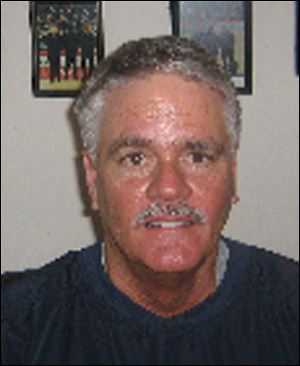
10 Questions: Rick Kaifas
4/17/2011
Kaifas
Rick Kaifas moved to the next phase in his 42-year association with high school athletics April 6 when he became commissioner of the Toledo Area Athletic Conference. Kaifas, 62, graduated from Central Catholic in 1966, earned a bachelor’s degree from Bowling Green State University in 1970, and a master’s from the University of Toledo in 1975. He began teaching (English) and coaching (basketball) in 1970 at Libbey, and in 1973 moved to Washington Local Schools. He was Whitmer’s boys basketball coach from 1977-89 (187-85 record, five Great Lakes League titles), guiding the Panthers to the state semifinals in 1987. He was also Whitmer’s athletic director (1989-2004), and officiated basketball from 1990-2011, working 12 boys and 11 girls City League championship games, plus four boys and two girls state tournaments.
Who was influential in setting you on your career path as a coach?
“I was a snot-nosed kid when I was hired at Libbey. I found Crystal ‘Boo’ Ellis as the perfect role model in how to handle players. He was firm but fair — no nonsense. The players respected him to the ultimate, and always played their hardest. At Whitmer, Jim Kubacki taught me the X’s and O’s, along with game strategies. In these two men, I had the best of both worlds.”
What was your most memorable personal highlight as an athlete?
“I really didn’t have much of a career at an early age. But, by far, the greatest personal [coaching] highlight was winning the regional championship against Columbus Brookhaven.”
From a coach’s standpoint, what stood out about that 1987 state semifinal group?
“That team was talented, but what made them stand out was the chemistry they developed as the season progressed. All the players knew their roles and accepted them. They became a very unselfish group.”
You seemed on the brink of big things in coaching, so why did you retire from coaching when you did?
“I had become the athletic director in 1988, as well as retaining my position as head basketball coach. Doing both jobs started to become overwhelming. I had to make a choice, not only for my career, but for my health.”
What were the highs and lows during your time as athletic director?
“There were definitely more highs than lows. I inherited an outstanding coaching staff from my mentor, Frank Erme, so not much was needed to be done in that capacity. The lows normally centered on over-exuberant parents who wanted to help me do my job. ”
What was the transition like, going from yelling at referees to being yelled at by coaches?
“I never raised my voice to an official, as far as I can remember. My credo was that ‘Every coach should be made to officiate, and every official should be made to coach.’ I always said I did my best officiating when I was coaching — I can’t remember ever missing a call.”
Were you a better coach or official?
“To be quite honest, I thought I was very good at both. I will let my record stand on its own. There will always be people out there willing to criticize coaches and officials, but they never take that next step to be either one.”
What drew you to becoming commissioner of the Toledo Area Athletic Conference?
“I firmly believe the TAAC can be one of the best small school leagues in northwest Ohio as well as the state. The league has had great success in the last few years in volleyball, boys and girls basketball, and baseball. With the addition of Gibsonburg, the TAAC is on its way to more success athletically as well as academically.”
How would you summarize your experience at Whitmer?
“Whitmer encompassed my life for 31 years. My children were raised in the community and graduated from Whitmer. It will always have a special place in my heart. The friends and relationships that were developed in those years will always be dear to me, and the hardest part is not seeing those friends and colleagues who were such a big part of my career.”
In your time, what has changed the most in high school athletics?
“Parental interference. At a clinic, I once heard coach Bob Knight make the most profound statement on high school athletics: ‘The best place to coach is in an orphanage, because there you don’t have to deal with the parents.’ Enough said.”
— Steve Junga